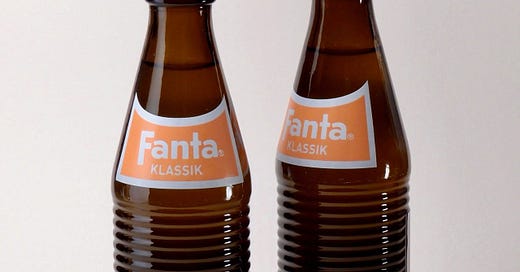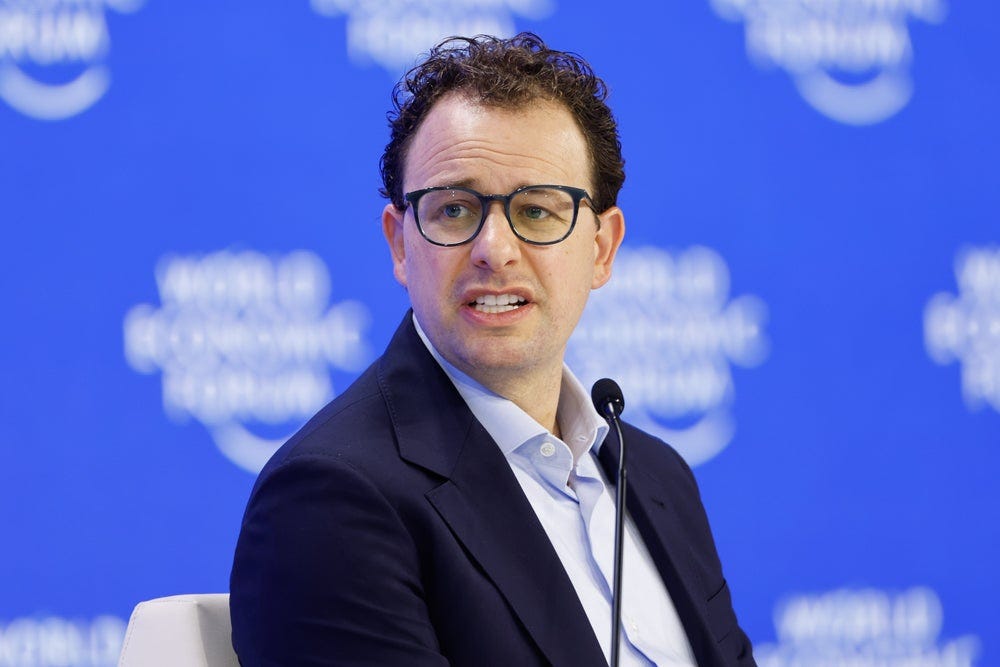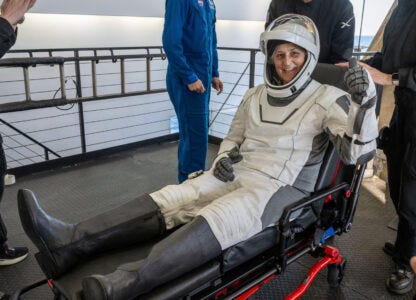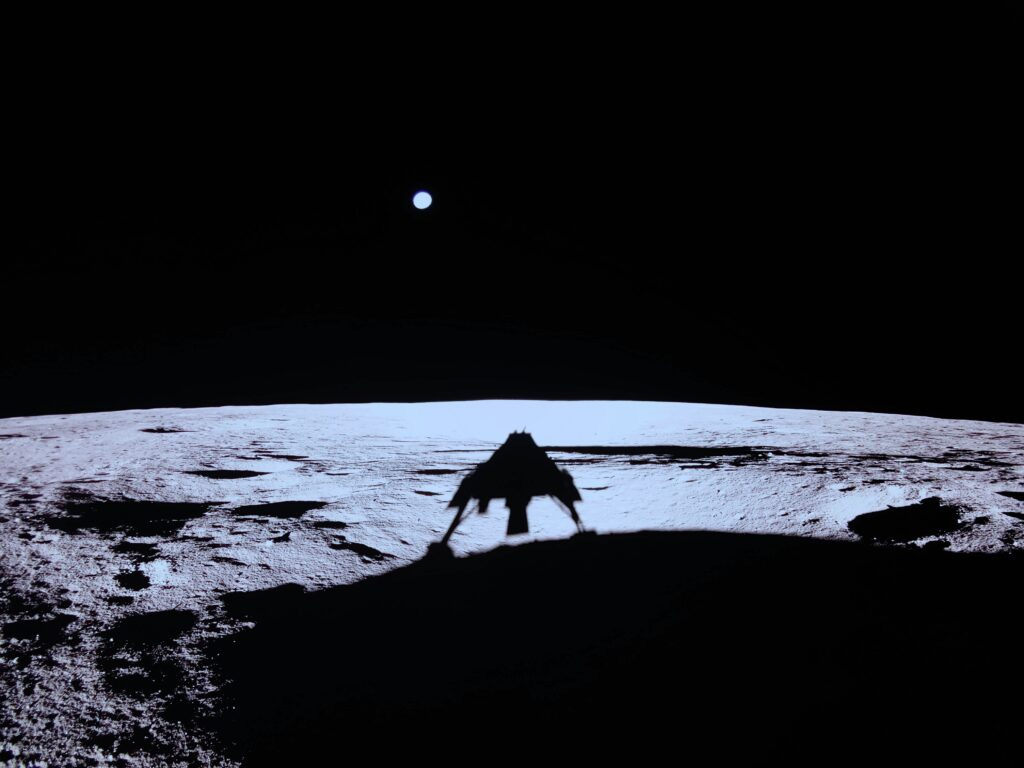#52: E-taste, Einstein AI Model, Fanta, Rescued Astronauts, BYD's Supercharger, Nuclear Fusion, AI Takes Over Programming, and more!
Hi everyone!
I’ll keep this introduction short by writing about two things I noticed in the past weeks.
First up: somehow a quarter of the year has already passed. It seemed like it was yesterday that we celebrated New Year’s...
And second: this newsletter now has 1,200 subscribers! Super happy with that milestone, and want to thank you for tuning in and reading my newsletter.
As always, I want to hear from you. If you have ideas to improve this newsletter, hit reply, and let me know!
Thanks for reading,
Xavier
🤓 Cool Stuff I Found on the Internet
Write, write, write
This article reminds us that writing is a critical tool for organizing and enhancing our thoughts. It provides structure to our disorganized minds. Writing forces us to articulate thoughts coherently and reveals blind spots in our thinking.
E-Taste device
Scientists have developed a device that can recreate and share flavors remotely. The system consists of an "electronic tongue" that analyzes taste chemicals in a sample and a delivery device that mixes and dispenses edible taste chemicals to recreate the flavor.
Speech protein
We may have found the gene that may have helped humans develop speech. Scientist found that changing the NOVA1 protein in mice also altered their vocal sounds. The human NOVA1 gene is absent in Neanderthals.
Surprising history of Fanta
I found out that Fanta was invented during World War 2 in Nazi Germany because of US trade sanctions. Coca-Cola’s German subsidiary couldn’t import the secret syrup. So they used “leftovers of leftovers” to create Fanta! A combination of apple pulp, beet sugar, and whey.
North Korean crypto heist
FBI accuses North Korea's Lazarus Group of stealing $1.5 billion in Ethereum from Bybit. It's one of the largest crypto heists ever. Meanwhile, Bybit is fighting back by offering a bounty of 10% to anyone who can trace and stop transfers of the stole funds.
⏳ On this day...
1972 - The U.S. Supreme Court decision in Eisenstadt v. Baird extended the right to possess contraceptives to unmarried individuals. This is a landmark ruling in the history of reproductive rights.
1993 - Intel ships the first Pentium chip, bringing a major leap in processing power.
1995 - Cosmonaut Valeri Polyakov returned to Earth after setting a record of 438 days in space.
🧠🤖 Artificial intelligence
The Einstein AI model
The article challenges the idea that AI will lead to a “compressed 21st century” of rapid scientific discoveries. The author argues current AI models lack the ability to challenge its training data. It’s unable to propose new and bold ideas or to ask non-obvious questions.
Real-time accent alteration
Teleperformance SE, the world's largest call center operator, is implementing an AI system to soften the accents of English-speaking Indian workers in real-time. It aims to enhance customer understanding and satisfaction by neutralizing accents without changing the speaker's voice or emotion.
Weakening copyright protection
OpenAI is lobbying to allow them to train AI systems on copyrighted works without permissions or compensations. Now, over 400 prominent Hollywood figures have signed an open letter to the Trump administration, urging them to maintain copyright protections against AI companies’ attempts to weaken them.
GPT-4.5
OpenAI released GPT-4.5, it's "biggest and best" chat model yet. Human testers praised the model for better emotional intelligence and social cue reading. Critics argue this model is just a stopgap before more significant changes. OpenAI says this model will be the last "classic" model and says GPT-5 will add reasoning capabilities.
Claude 3.7
Anthropic has launched Claude 3.7 Sonnet, a hybrid reasoning AI model that offers both quick responses and extended thinking capabilities. The model decides whether to answer user questions directly or to “reason” about them first.
AI to take over programming?
Anthropic CEO Dario Amodei predicts AI will write 90% of code for software engineers within 3-6 months and all code within a year. This aligns with Mark Zuckerberg’s statement about AI replacing midlevel engineers.
👽 Space
Stranded astronauts back on Earth
What was supposed to be a week-long trip to the ISS turned into a 286-day adventure. Earlier this week, stranded astronauts Butch Wilmore and Suni Williams splashed down safely in the Gulf of Mexico.
Second-ever commercial moon landing
Firefly's Blue Ghost, a compact car-sized lunar lander, successfully touched down on the Moon's Mare Crisium basin. The four-legged spacecraft landed near an ancient volcanic vent. It has 10 instruments on board and will perform an experiment to test if satellite navigation systems would work on the moon.
Lack of dirt harmful to astronauts
Scientists have discovered that the International Space Station’s extreme cleanliness may be negatively affecting astronauts’ health. The ISS lacks environmental microbes found in soil and water on Earth, which are beneficial to the immune system. This absence of microbial diversity could explain why astronauts often experience immune-related health issues.
⚡️ Energy & Environment
Norway's wealth fund
Norway's decision to establish the Government Petroleum Fund in 1990 has proven to be one of the most successful financial moves in history. It has grown to become the world's largest sovereign wealth fund, valued at $1.78 trillion. It owns 1.5% of all listed stocks globally and recently posted a record annual profit of $222 billion. The fund is now focusing on renewable energy infrastructure.
BYD's super super fast charge
Do you think EV charging is too slow? BYD just introduced a new 1000 volt platform that adds 400km of range in just 5 minutes. The company plans to install 4000 "ultra-fast chargers" across China. Very cool, but I wonder what the downsides are of charging a battery pack that quickly.
22 minutes of nuclear fusion
WEST, France's nuclear fusion reactor, has maintained a fusion reaction for 22 minutes! This surpasses China's previous record of 1066 seconds. The experiment focused on maintaining a stable reaction while preventing component erosion and malfunction. Insights gained from WEST will contribute to more ambitious projects, including ITER.








